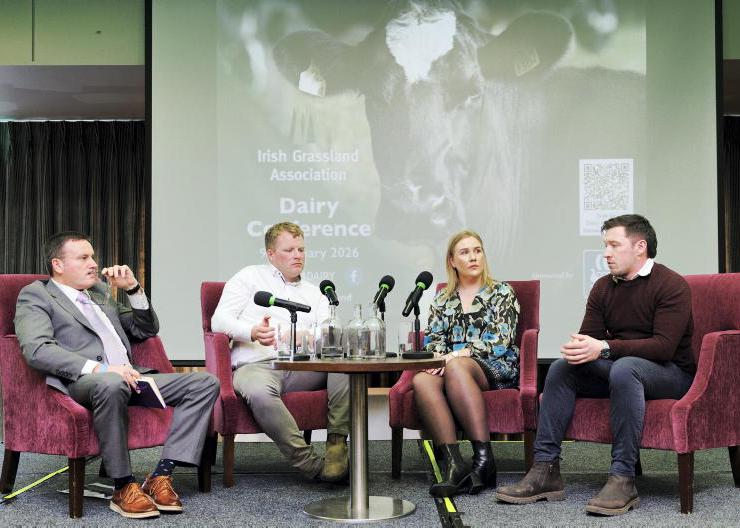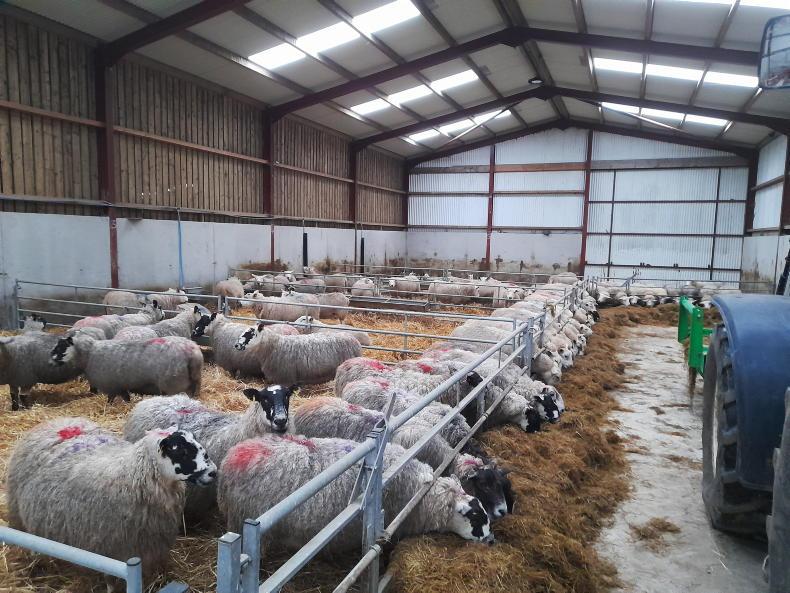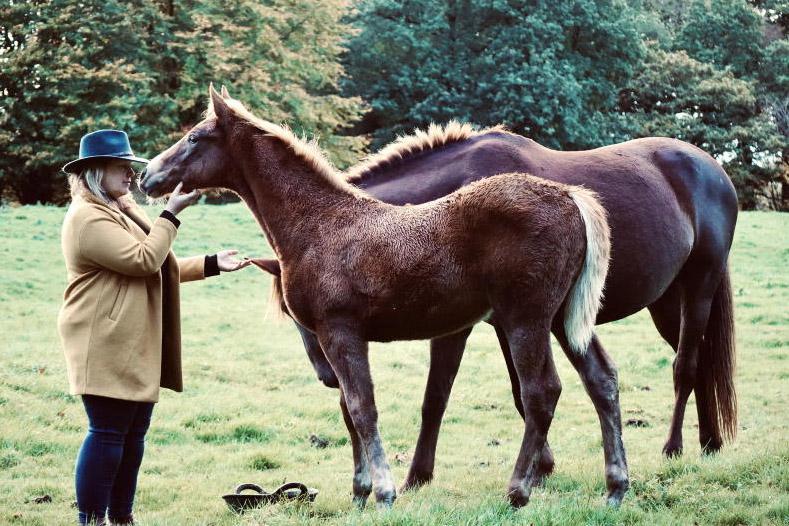A rural sociology research paper has found that money and uncertainty are some of the main stress factors that Irish farmers are dealing with.
The research was completed by Joseph Firnhaber, Sandra M Malone, Anna Donnla O'Hagan, Sinéad O'Keeffe, John McNamara and Siobhán O'Connor, who surveyed farmers around a range of stress factors in their occupation.
The survey focused on three headings on loss of income, identity and wellbeing: rapid changes could create stress by exacerbating uncertainty and threatening farmers' financial security; changes to standards for 'good farming'; and rural culture.
The survey also looked at identifying ways in which the work of farming can be therapeutic.
Financial uncertainty
According to data in the paper, farmers average 50- to 80-hour work weeks, working schedules that vary across seasons, months and days, often for low profit margins.
Due to these challenges, farming populations across the world face a wide range of occupational mental health risks including anxiety, depression and, most concerning, suicidal ideation.
As a result, farmers across Europe, Australia and the United Kingdom have worse mental health when compared with the general population of each region.
One of the farmers who was surveyed said that many of the occupational stressors are largely out of farmers’ control.
“Money is the overriding stress factor with farmers. If their mental health is bad, it's because of money … I don't think a lot of smaller farmers have realised that they're getting themselves deeper into debt hoping and praying that things are gonna sort themselves out,” he said.
“The smaller family farms used to be really big, the backbone of the farming community in Ireland for two or three hundred years are just getting completely eradicated and it's a long slow death for most of us and I just don't know, you know. It's a very sad state.”
Positives
However, the research paper also found that the labour involved in farming and the rural spaces of farming can be a buffer against stress.
“I consider this a complete relaxation, coming out to do these jobs [on the farm] as opposed to being in the office all day,” said one farmer.
Meanwhile, an agriculture stakeholder said: “Oh I tell you, it absolutely clears your head completely and you get clarity of thought. I've solved more work problems by accident, putting out slurry than maybe my bosses even realise.”

The survey also looked at identifying ways in which work of farming can be therapeutic. \ Philip Doyle
Another stakeholder said: “That's milking for me. I absolutely love milking, because it's time for me and it's just me and cows.
“Now, the girls do milk a good bit with me, but, like, it even gives us the chance to have a conversation where sometimes we'd be passing each other. But I literally do my best thinking inside the parlour because, in my mind, I don't worry about nothing else, just me and the cows.”
Survey
The research team collected data online through semi-structured interviews with 17 farmers and three focus groups with 11 farming stakeholders.
The team purposefully sampled for a diversity of farm types and genders, resulting in a final participant pool of 16 men and 12 women, plus a range of farm types: dairy (10), sheep (six), beef (five), tillage (three), equine (one) and other/none (three).
Participants represented 15 of the Republic of Ireland's 26 counties.
The paper concluded by suggesting that economic policy and agricultural governance prioritise farmers' financial security and mental health through policy change and acknowledge their valuable contributions.
A rural sociology research paper has found that money and uncertainty are some of the main stress factors that Irish farmers are dealing with.
The research was completed by Joseph Firnhaber, Sandra M Malone, Anna Donnla O'Hagan, Sinéad O'Keeffe, John McNamara and Siobhán O'Connor, who surveyed farmers around a range of stress factors in their occupation.
The survey focused on three headings on loss of income, identity and wellbeing: rapid changes could create stress by exacerbating uncertainty and threatening farmers' financial security; changes to standards for 'good farming'; and rural culture.
The survey also looked at identifying ways in which the work of farming can be therapeutic.
Financial uncertainty
According to data in the paper, farmers average 50- to 80-hour work weeks, working schedules that vary across seasons, months and days, often for low profit margins.
Due to these challenges, farming populations across the world face a wide range of occupational mental health risks including anxiety, depression and, most concerning, suicidal ideation.
As a result, farmers across Europe, Australia and the United Kingdom have worse mental health when compared with the general population of each region.
One of the farmers who was surveyed said that many of the occupational stressors are largely out of farmers’ control.
“Money is the overriding stress factor with farmers. If their mental health is bad, it's because of money … I don't think a lot of smaller farmers have realised that they're getting themselves deeper into debt hoping and praying that things are gonna sort themselves out,” he said.
“The smaller family farms used to be really big, the backbone of the farming community in Ireland for two or three hundred years are just getting completely eradicated and it's a long slow death for most of us and I just don't know, you know. It's a very sad state.”
Positives
However, the research paper also found that the labour involved in farming and the rural spaces of farming can be a buffer against stress.
“I consider this a complete relaxation, coming out to do these jobs [on the farm] as opposed to being in the office all day,” said one farmer.
Meanwhile, an agriculture stakeholder said: “Oh I tell you, it absolutely clears your head completely and you get clarity of thought. I've solved more work problems by accident, putting out slurry than maybe my bosses even realise.”

The survey also looked at identifying ways in which work of farming can be therapeutic. \ Philip Doyle
Another stakeholder said: “That's milking for me. I absolutely love milking, because it's time for me and it's just me and cows.
“Now, the girls do milk a good bit with me, but, like, it even gives us the chance to have a conversation where sometimes we'd be passing each other. But I literally do my best thinking inside the parlour because, in my mind, I don't worry about nothing else, just me and the cows.”
Survey
The research team collected data online through semi-structured interviews with 17 farmers and three focus groups with 11 farming stakeholders.
The team purposefully sampled for a diversity of farm types and genders, resulting in a final participant pool of 16 men and 12 women, plus a range of farm types: dairy (10), sheep (six), beef (five), tillage (three), equine (one) and other/none (three).
Participants represented 15 of the Republic of Ireland's 26 counties.
The paper concluded by suggesting that economic policy and agricultural governance prioritise farmers' financial security and mental health through policy change and acknowledge their valuable contributions.










SHARING OPTIONS